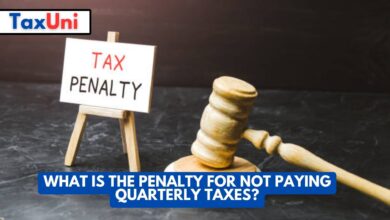Florida Business Taxes
Florida is a business-friendly state that offers many incentives to small businesses. Its low corporate tax rate and robust infrastructure make it a good place for business operations.

Florida business taxes are critical to any small business’s financial planning. The type of tax you owe depends on your business structure and net worth. If you’re unsure about what kind of Florida business taxes you need to pay, consult a professional for help.
Florida’s state business taxes are relatively low compared to those of other states. However, some counties apply additional local taxes like transient rental tax on certain accommodations or discretionary sales surtaxes on many transactions at rates that vary by county. In addition, some of these counties may also impose motor vehicle and mobile home surtaxes on purchases made within the county.
A C corporation’s Florida business taxes are based on its federal taxable income, which is determined by adding non-business income and subtracting an exemption. Unlike other states, Florida doesn’t impose an individual income tax, which makes it easier for pass-through entities to determine what they owe. In Florida, this includes LLCs, partnerships, and sole proprietorships.

How to File Florida Business Taxes?
Florida offers a lot of benefits to small business owners, from a robust infrastructure to foreign trade zones. It also has a low corporate tax rate, which helps make it one of the most tax-friendly states in the country. However, knowing how business taxes work in Florida is important before starting a company. This guide will cover everything you need to know about the state’s business taxes, including types of Florida taxes, the Florida business tax rate, and how different business structures are taxed.
C corporations in Florida must pay a corporate income tax based on federal taxable income plus add-ons and subtractions. The first $50,000 of net income is exempt from this tax. However, C corporations can elect to use the federal or Florida business tax rates, whichever is higher.
S corporations and LLCs don’t pay a state income tax, because they are pass-through entities. However, they must register and file Form F-1120 each year. In addition, they must collect sales and use tax on taxable retail sales. Online marketplace providers that sell to customers in Florida must also collect and remit sales and use tax, as well as any discretionary surtax.
Florida also requires individuals and businesses to pay sales and use tax using Form DR-15MO or MeF. In addition to filing this return, some businesses must remit use tax payments on a quarterly basis. These payments must be made electronically with the Department of Revenue. Those who are required to report and remit use tax should register online using the Department’s MeF registration webpage.
Florida Business Tax Due Dates
While most people think that Tax Day is the only business tax deadline, several other important dates remain throughout the year. These deadlines vary depending on the type of business and its earnings. For example, a C-Corporation’s taxes are due on the 15th of the third month following the close of its tax year. The return is due on the next business day if that date falls on a weekend or a state or federal holiday.





